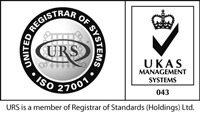In today’s world, outsourcing is seen as a way to reduce costs and to increase the efficiency of a certain activity / department within a company. Also, today more companies are relying on outsourcing to custom-develop an application or improve a software product, to provide their customers with support / assistance services, and even to help them with their marketing / Internet marketing and advertising campaigns.
However, when a service is externalized, there is the risk that on the road between customer and outsourcer the information may get distorted, or even worst – get lost. When outsourcing, this risk is bigger when the outsourcer is located in another country – this is called offshoring. In this case, two new challenges arise: a new language and and a new culture. For example, when providing offshore software development services towards an European or North-American customer, European and South-American countries have a lower linguistic and cultural barrier, unlike Asian and African countries (which are located further away from a geographical point of view, leading to a bigger cultural gap).
Although many agree that communication is a very important part when providing outsourcing / offshore services, few succeed to reach a good communication level and to find the best channels in order to communicate. A good communication when outsourcing / offshoring results in the end (for example) into a good software product / application that meets the customer’s requirements, so communication should be the first aspect that both outsourcing partners must verify and agree upon, before starting the collaboration.
Channels, channels and more channels
Even if face-to-face communication is preferred when outsourcing a service, the cases when such an approach is possible are fewer, especially when offshoring (when the outsourcer is located in another country). However, thanks to the existing technologies, this gap can be filled in by Instant Messaging (IM) tools, video-calls, emails etc. Also, it’s best that both outsourcing partners decide upon these tools right from the start. When there is a time difference, emails are the most convenient and efficient way to communicate when outsourcing / offshoring. On the other hand, when timezones coincide, then IM and audio calls are to be preferred.
Hi, I am SBP!
The next step, after choosing the communication channels, is to set a clear connection between the customer and the outsourcer by appointing a contact person / persons on each side. Particularly in the case of software / application development, it’s best that every side delegates a contact person (persons) who will be in charge with the communication aspect of the outsourcing process. This way, it will be very clear who’s the responsible for the outsourcing project, and who you need to contact in case you have questions, new requests or feedback. This is most useful when you want to custom develop an application. So the information will be gathered in one place, and will be managed by a small number of persons, so the risk of losing pieces of information is almost zero.
And what do you think about this?
Giving feedback is an essential part of the communication process when providing outsourcing / offshoring services. Constant feedback between customer and outsourcer assures a clear understanding of the current issues that may appear in the custom development process, and provides a genuine view upon the project. This way, both sides check that the message is clear, that it produces the desired effects, and that the end software product meets the customer’s requirements.
The smallest things make the biggest difference
Communication is not all about words. Equally important in the communication process are the visual elements, such as: PowerPoint presentations, written training material for the software product, videos etc., which can help the understanding of issues and speed up results.
Competition in the outsourcing market has become fierce, and only the companies that succeed to provide a complete service will be able to win the customers’ trust. This new positioning of the outsourcing companies has changed the way outsourcing and offshoring is seen – it’s no longer considered to be just “cheap workforce”, but rather “domain-specific professionals” (which means an efficiency increase, and therefore also brings cost reductions). Romania has understood this aspect and has striven to improve the quality of the services that are offered, by providing not just skills, but a complete package of benefits, that includes efficiency and clarity.







